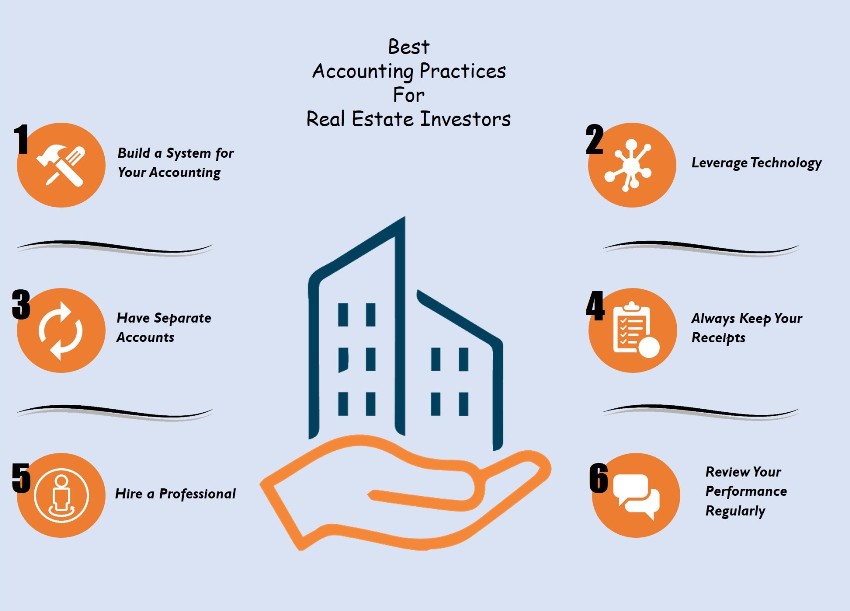The Advantages of Hiring Real Estate Tax Services for Property Owners
The Key Advantages of Executing Construction Bookkeeping Practices in Building And Construction & Property Firms
The execution of construction bookkeeping techniques within construction and genuine estate companies provides countless advantages that can dramatically enhance general financial management and project end results. By establishing extensive budgeting and cost-tracking systems, companies can accomplish better accuracy in economic planning and cash circulation management.
Improved Spending Plan Control
In the realm of building accountancy, reliable budget control is paramount for job success. Boosted spending plan control involves extensive surveillance and management of economic sources throughout the task lifecycle. Precise budgeting makes sure that prices are approximated reasonably, allowing companies to assign funds successfully and mitigate the threat of overruns.
To attain enhanced spending plan control, building and construction firms need to utilize detailed price monitoring approaches, utilizing advanced software program solutions that help with real-time information analysis. This consists of breaking down task prices into labor, products, and above, allowing for accurate projecting and modifications as required. Routine budget plan evaluations and variance analysis are essential in determining disparities between projected and actual expenditures, which can educate timely decision-making.
In addition, clear communication amongst task stakeholders is essential for maintaining budgetary discipline. Developing a culture of liability makes sure that all employee understand financial constraints and purposes. By promoting cooperation across divisions, companies can boost their capability to reply to monetary difficulties proactively.

Improved Cash Flow Management

Efficient capital administration is essential for construction firms, as it directly influences their capacity to operate smoothly and fulfill job responsibilities. By utilizing robust building audit methods, firms can get a clearer image of their economic position, enabling better forecasting and source allowance.
Among the key advantages of improved money circulation management is the capacity to anticipate periods of financial stress. Construction projects frequently include considerable upfront costs and changing earnings based on job turning points. With effective monitoring of earnings and expenses, companies can identify potential money shortages and execute techniques to mitigate them, such as securing lines of credit rating or changing settlement routines with subcontractors.
Furthermore, timely invoicing and diligent follow-up on receivables can boost money circulation. By improving these procedures, building firms can ensure that funds are available when required, sustaining ongoing procedures and lowering the danger of delays because of cash constraints. Precise cash money circulation forecasts enable firms to make enlightened decisions concerning financial investments in new tasks, tools, or workers, fostering sustainable growth and security within the organization. Ultimately, enhanced capital management is crucial for preserving functional performance and guaranteeing lasting success in the competitive building industry.
Enhanced Project Productivity
Taking full advantage of job profitability is a basic goal for building and construction firms making every effort to boost their monetary efficiency. By accurately tracking job expenses, companies can identify areas of overspending and carry out corrective measures without delay.
Moreover, in-depth economic coverage and evaluation give understandings into revenue margins for various tasks. By examining these margins, companies can make enlightened decisions on future bids, ensuring they pursue jobs that straighten with their earnings goals. Furthermore, construction bookkeeping practices facilitate much better communication amongst project stakeholders, fostering partnership that can result in cost-saving advancements and improved project execution.
Furthermore, establishing a robust accountancy structure allows firms to precisely assess their efficiency versus industry benchmarks. This not only helps in identifying strengths however likewise highlights weaknesses that need addressing, making it possible for continual renovation. Ultimately, increased task earnings not only strengthens a firm's financial standing but likewise improves its competitive advantage in the building and realty market, paving the way for Visit Your URL lasting development and success.
Streamlined Financial Processes
Streamlined economic processes are crucial for construction firms aiming to improve functional performance and precision in their bookkeeping practices. By applying standard procedures and making use of specialized software application, companies can significantly decrease the moment and effort invested in economic administration jobs. Automation of routine tasks, such as payroll, expenditure, and invoicing monitoring, reduces human error and makes sure that monetary data is refined quickly.
Furthermore, streamlined procedures promote much better capital monitoring, a vital aspect for building companies where project timelines and budgets can be uncertain. With real-time monetary reporting, business can monitor their fiscal health, enabling swift changes to alleviate any type of capital problems. This aggressive approach helps keep provider partnerships and keeps jobs on time.
Integrating building accounting techniques makes it possible for firms to combine various financial features, from budgeting to job costing, right into natural workflows. This combination not just saves time yet additionally promotes openness and accountability among staff member. Ultimately, streamlined monetary processes add to a much more dexterous company, ready to reply to market modifications and job demands while ensuring that financial stability remains undamaged.

Notified Decision-Making Insights
Informed decision-making is i loved this essential for construction firms browsing complex job landscapes and varying market problems. By applying robust building and construction bookkeeping methods, companies can leverage exact monetary data to promote strategic options. This data-driven technique allows managers to assess task viability, allocate resources effectively, and predict capital fluctuations with better accuracy.
Building accounting offers insights right into price monitoring, allowing firms to determine locations of overspending and apply corrective steps without delay. As an example, detailed budget plan tracking and variation evaluation can expose discrepancies between predicted and actual prices, informing future job proposals and techniques. Additionally, timely financial coverage boosts the capacity to respond to market modifications, making certain that firms continue to be agile and affordable
In addition, accurate financial understandings foster much better interaction with stakeholders, consisting of financiers and clients. Clear economic directory reporting develops trust and confidence, as stakeholders can see the company's economic health and job efficiency at a glimpse. Ultimately, informed decision-making, backed by audio accountancy methods, outfits building firms to navigate difficulties, take advantage of chances, and drive sustainable growth in an increasingly competitive industry.
Conclusion
To conclude, the application of building and construction accountancy methods in construction and actual estate companies considerably improves monetary administration. By assisting in boosted budget plan control, boosting cash money circulation monitoring, and raising job success, these techniques add to structured economic procedures and informed decision-making. The adoption of such methodologies not just promotes accountability amongst stakeholders however also outfits firms with the agility needed to navigate fluctuating market conditions, ultimately leading to better general success in task implementation.
The application of building audit practices within construction and genuine estate companies presents various benefits that can significantly enhance overall monetary monitoring and task outcomes. Building tasks often entail significant ahead of time costs and varying earnings based on job milestones. Additionally, construction audit practices promote better interaction amongst job stakeholders, cultivating partnership that can lead to cost-saving advancements and boosted task execution.
Integrating building audit practices makes it possible for companies to combine different economic functions, from budgeting to job setting you back, right into natural operations. Real Estate Accountants. In-depth spending plan monitoring and difference evaluation can expose discrepancies between projected and real prices, educating future task bids and techniques